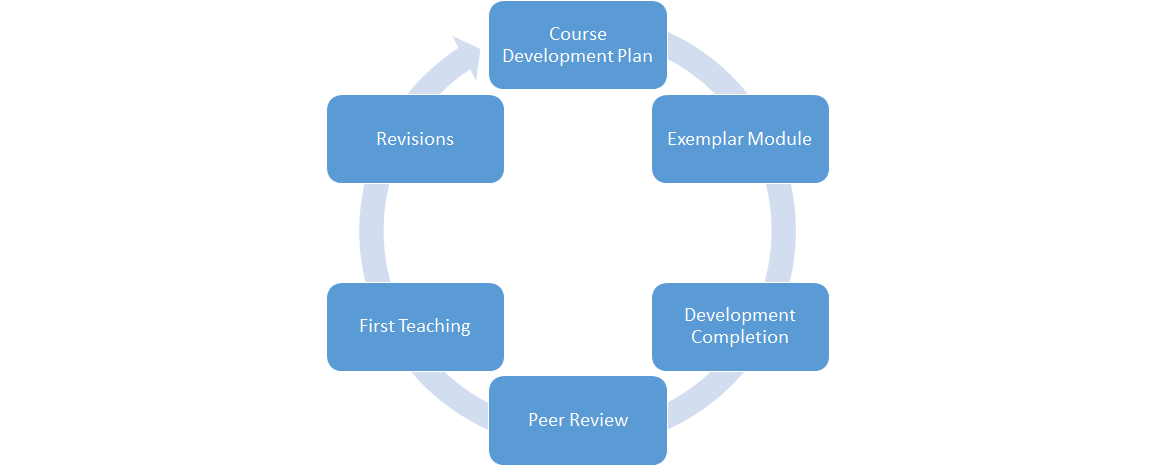The Mount’s online course development process consists of a few distinct stages. Here is an overview of each of the stages of the process.
1) Course development plan. A full plan outlining the course will be developed first. It will take into consideration various aspects of students’ learning experience, and contain activities and materials that will help the students’ progress on their journey. The course development plan is supported by the instructional developer, and is approved by the Director of Teaching and Learning. The department chair reviews the course development plan and may provide feedback.
2) Exemplar module. The faculty developer will craft a sample of the final course with the support of an instructional developer and various other academic supports, as needed. This is typically one complete module of the course, often considered one week of the course. The exemplar module will serve as the template for the course as a whole. It will be review by an instructional developer and, in some instances, also by the department chair and/or peer reviewer.
3) Development completion. Once the faculty developer is satisfied with the exemplar module, they can start the rest of the development using the template that has been designed. In this stage, they will continue the rest of the work developing the major activities and other components necessary for the course to function.
4) Peer Review. Once a complete draft of the course is complete, it will go to a peer reviewer. Since these courses are meant to serve as department assets, a member of the department will serve as reviewer. The review will provide the faculty developer with concrete feedback on the course.
5) First Teaching. Once the peer review stage is complete, it is ready for teaching. Faculty developers have the first right of refusal for the initial offering. At this stage, the course is piloted with students, and the faculty developer will decide how to revise based on this initial run.
6) Revisions. Final course revisions are made after the first teaching to allow instructors time to tweak their courses based on what worked and what didn’t. In some cases, a course may be revised prior to the first teaching. It is in this final stage that peer review feedback, feedback from the TLC, and feedback from students, is incorporated.
The Mount Online Course Development Team has developed the open educational resource Online Course Development: Creating Robust Educational Experiences Online. This resource guide is designed to help course developers plan the design of their online course from a student-centered perspective. After working through the resource, you should have the foundational outline and plan you need to start developing a course in your learning management system.
